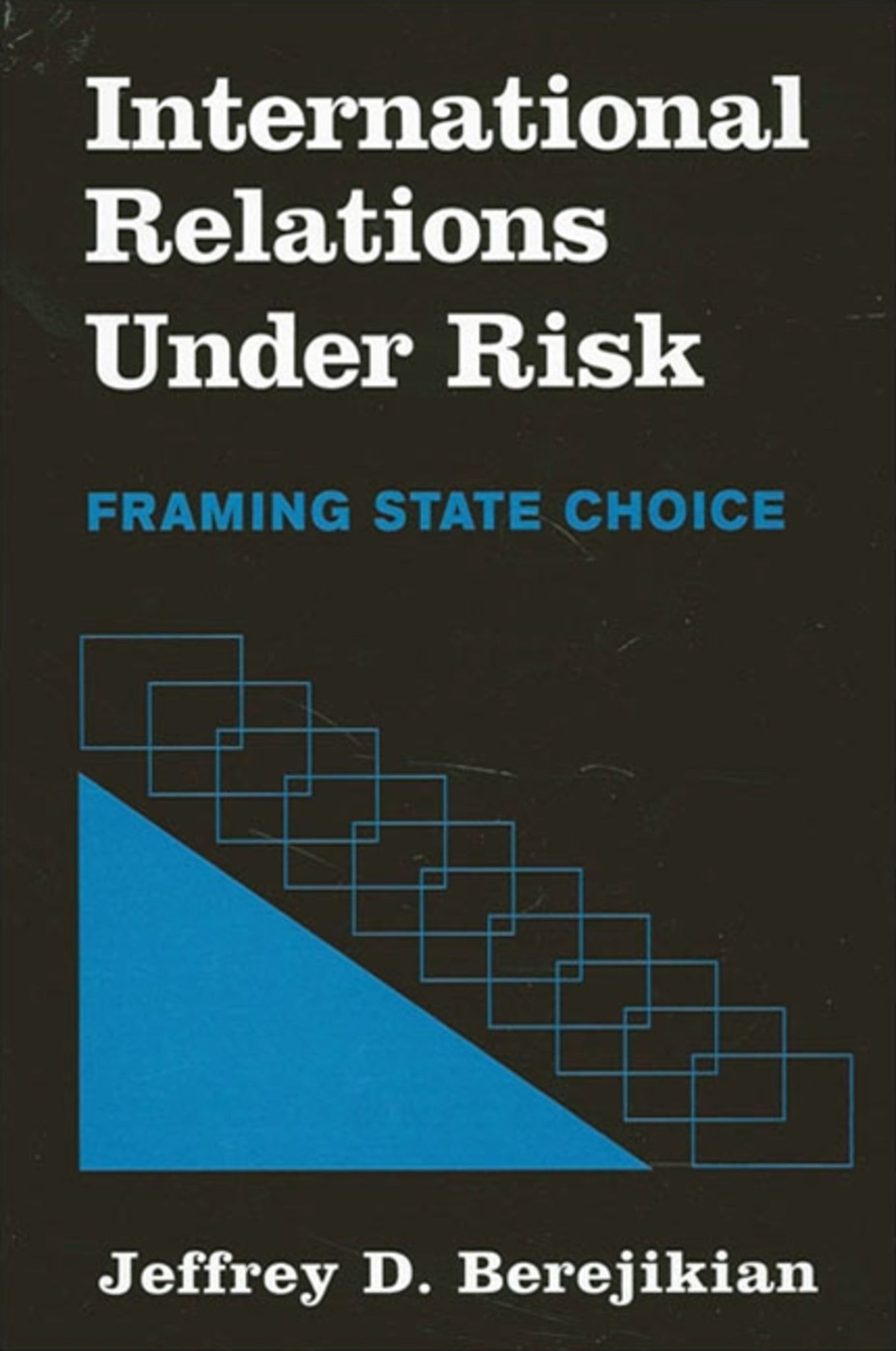We're sorry. An error has occurred
Please cancel or retry.
International Relations under Risk

Some error occured while loading the Quick View. Please close the Quick View and try reloading the page.
Couldn't load pickup availability
- Format:
-
03 August 2004

Argues that international relations ought to be anchored in realistic models of human decision making.
The field of international relations is only now beginning to take notice of cognitive models of decision making. Arguing against the trend of adopting formalistic depictions of human choice, Berejikian suggests that international relations and realistic models of human decision making go hand-in-hand. The result is a set of interconnected propositions that provide compelling new insights into state behavior. Utilizing this framework, he discusses the behavior of the United States and Europe in negotiating the Montreal Protocol, a landmark international agreement designed to save the earth's protective ozone shield.


PREFACE AND ACKNOWLEDGMENTS
1. COMPETING MODELS OF DECISION MAKING
Introduction
Cognition and International Relations Theory
Prospect Theory
Assessment
Chapter Summary
2. PROSPECT THEORY AND INTERNATIONAL RELATIONS
Introduction
Arguments against Prospect Theory
Prospect Theory and the Study of International Relations
Conclusion
3. THE USE OF POWER
Introduction
Status Quo, Subjectivity, and Decision Frames
Power and Coercion
Military Deterrence
Economic Threats
Two-Level Economic Threat Model
The Failure of Sanctions
Conclusion
4. COOPERATION
Introduction
Propositions on Negotiation and Cooperation
Cooperation and the Prisoner's Dilemma
Is Cooperation Risky or Safe?
Strategic Choice
Cooperation and the Tragedy of the Commons
Conclusion
5. A UNIFIED THEORY OF PREFERENCES
Introduction
The Gains Debate
The Problem of Fixed Preferences
Constructivism and the Gains Debate
Unifying Preferences
Power, Preferences, and Strategies
Conclusion
6. THE EUROPEAN COMMUNITY
Background
Foreign Policy in a Community
The Decision Frame Prior to Vienna
Negotiating at Vienna: 1982–1985
Relative or Absolute Gains?
The Formation of a Losses Frame
The European Gamble
Conclusion
7. THE UNITED STATES
Background
Banning CFCs Prior to a Decision Frame
American Passivity
The Alliance for CFCs
An Inadvertent Losses Frame
The Move to Multilateralism: Vienna and Montreal
Conclusion
8. CONCLUSIONS
Preferences and Frames
Realism and Cooperation
Risk Acceptance, Cooperation, and Regime Design
Power, Leverage, and Domestic Win-Sets
The "Ozone Hole"
The Promise of a Cognitive Research Program
NOTES
REFERENCES
SERIES LIST
INDEX



